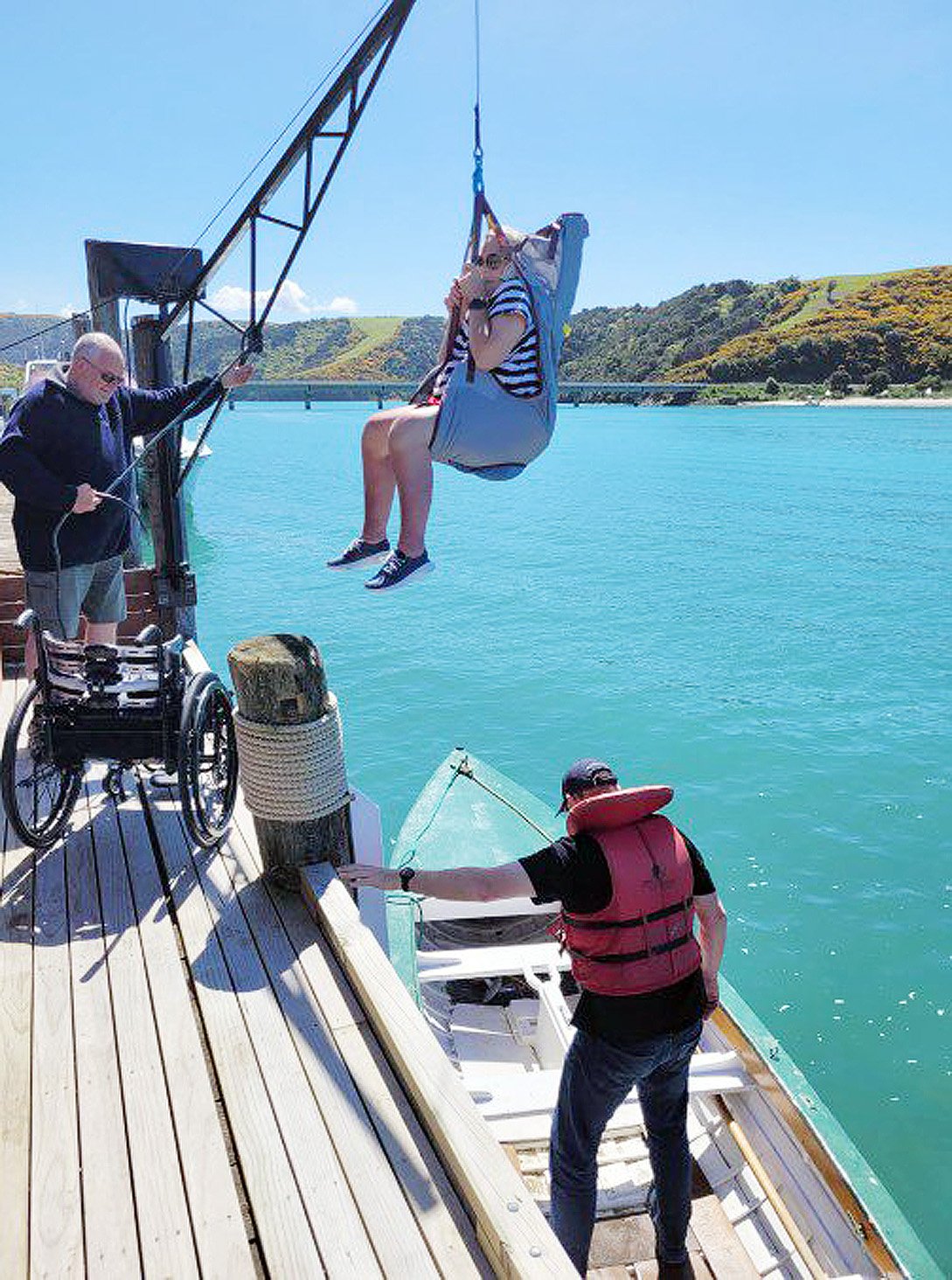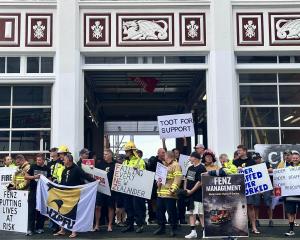
The proposal, part of which was recommended to be turned down in a planner’s report at the Otago Regional Council, featured residential accommodation for the applicant and their family and short-term rented accommodation in the style of Airbnb or similar. There would also be equipment to allow disability access to the area and a crane and lift harness to put people into the water.
Onumai Enterprises had applied to the council for consent to operate in a coastal marine area at Taieri Mouth.
At a hearing last week, Onumai Enterprises director Greg Mirams said his family had a strong historical connection with the area.
He said the Taieri Mouth community had changed in the past 30 years, but there had been no new community amenities or facilities added to support those changing community needs.
The company had already repurposed the original wharf crane and a custom lift harness was added. The floating pontoon had been updated and further ramp access from the road would be required to enable direct access from the wharf to the road.
Mr Mirams said he had watched his mother manage and live with lifelong physical limitations resulting from contracting polio.
"Being able to enjoy the river environment, boating or even safely being close to the water is an experience she could not access or enjoy."
Mr Mirams said over the past nine years he had spent time with a friend who was in a wheelchair.
"The daily challenges of life in a wheelchair are brutally hard, then you add the lack of accessible infrastructure, the shortage of fit-for-purpose accommodation and the result is that life becomes severely restricted."
The type of work was expensive and a sustainable commercial model, with the accommodation, was essential to support the building and ongoing viability of the facility.

"Being in a wheelchair can be challenging, especially when dealing with the reactions of others. People often stare, and some may ask rude or personal questions," she said.
"To be able to board a boat safely without family or friends lifting me would be incredible. The freedom to get in a canoe safely and head out on the water would be fantastic. To be able to experience things like this, like able-bodied people would be life-changing."
Occupational therapist Sandie Grant had worked in travel for people with disabilities for many years.
She said the coast was an integral part of the New Zealand psyche and people with disabilities were no different in that respect, but for a variety of reasons they could find engaging in these experiences very difficult.
"I think it is difficult for able-bodied people to understand the sense of empowerment that a disabled person can feel when they can get to these places, under their own steam without requiring troops of people to assist them.
"It is a source of confidence, and contributes hugely to a disabled person’s sense of worth and wellbeing," she said.
"The facility would open up a world of new options and opportunities for disabled people to engage in sport and recreation both active and passive."
Council principal consents planner Shay McDonald had recommended to the hearing panel the consents be granted for the wharf, floating pontoon, ramps and crane with winch.
But she recommended the accommodation part of the application be declined as there was no functional or operational need for an accommodation activity to locate within the common marine and coastal area.
A decision is expected next month.













